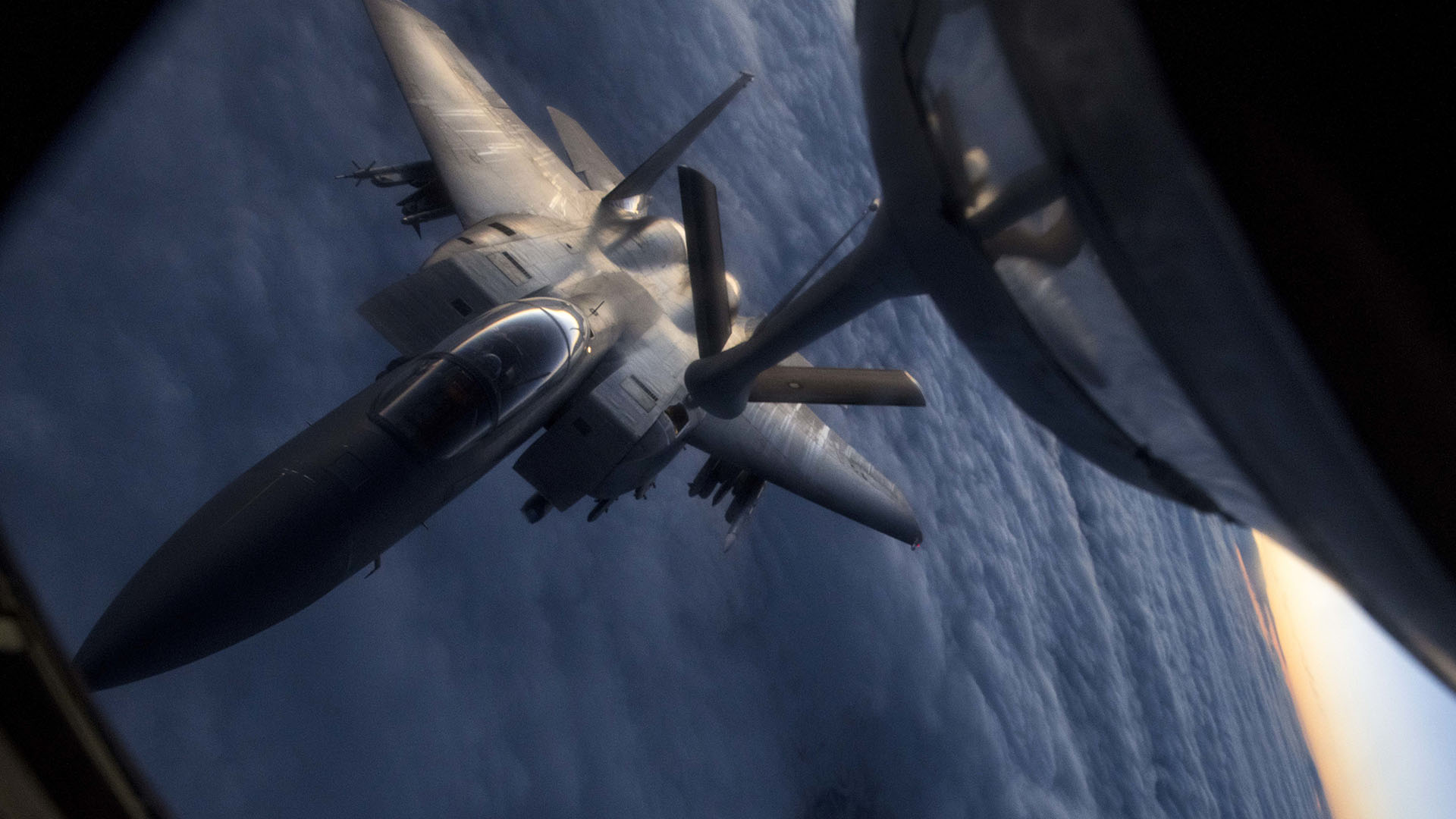

President Joe Biden has ordered his first overt airstrikes against a target in the Middle East, a rite of passage for presidents going back to President George Herbert Walker Bush.
The Pentagon announced the “defensive precision strike” on Thursday in response to recent attacks against U.S. and coalition personnel in Iraq, including the Feb. 16 rocket attack on Erbil International Airport in Iraq that wounded one U.S. service member and killed a civilian contractor.
“Specifically, the strikes destroyed multiple facilities located at a border control point used by a number of Iranian-backed militant groups, including Kait’ib Hezbollah (KH) and Kait’ib Sayyid al-Shuhada (KSS),” Pentagon spokesman John Kirby said in a statement.
Lara Seligman of Politico has reported that U.S. aircraft struck seven targets using 500-pound precision-guided bombs.
Kirby described the attack as a “proportionate military response” that shows Biden will act to protect American and coalition personnel.
Last year, the head of U.S. Central Command also described airstrikes against Kata’ib Hezbollah in Iraq as “proportional” and “defensive,” even though he acknowledged that the act of dropping a bomb on a target is “an offensive tactical action.”
“I think these attacks are designed to prevent future attacks on us, which would be the definition of a defensive action,” Marine Gen. Kenneth McKenzie Jr. told reporters during a March 13, 2020 Pentagon news briefing. In that sense, last year’s airstrikes failed: two U.S. service members were wounded in a March 14, 2020 rocket attack on Camp Taji, Iraq.
Despite the apparent lack of effectiveness of launching airstrikes against targets in Iraq and Syria, this tactic has been the ‘break glass in case of emergency’ option for presidents since the first Gulf War.
Former President Bill Clinton ordered a cruise missile strike against Iraq in 1993 in response to an attempted plot by Iraqi agents to kill former President George H. W. Bush. Five years later, Clinton ordered Operation Desert Fox, a four-day bombing campaign against Iraq because Saddam Hussein had refused to cooperate with United Nations weapons inspectors.
Of course, former President George W. Bush ordered the 2003 invasion of Iraq, which concentrated American airpower in the region for years; and former President Barack Obama approved airstrikes first in Iraq and then in Syria in August and September 2014 after the Islamic State terrorist group overran large parts of both countries.
Even former President Donald Trump, who repeatedly said he believed U.S. military operations in the Middle East and elsewhere were a waste of money and lives, approved a January 2017 raid in Yemen, during which Navy SEAL Senior Chief Ryan “William” Owens was killed, along with missile strikes against Syria in April 2017 and April 2018 after Syrian dictator Bashar al-Assad used chemical weapons against his own people.
Mazel tov, President Biden, and welcome to the club.
Featured image: A U.S. Air Force F-15E Strike Eagle prepares to be fueled by a KC-135 Stratotanker during a night training mission Dec. 17, 2020. (U.S. Air Force photo by Senior Airman Lawrence Sena)